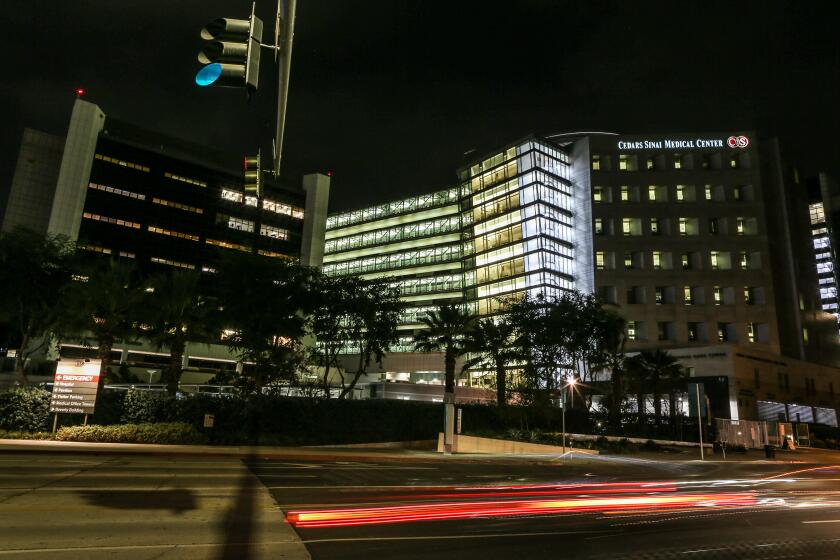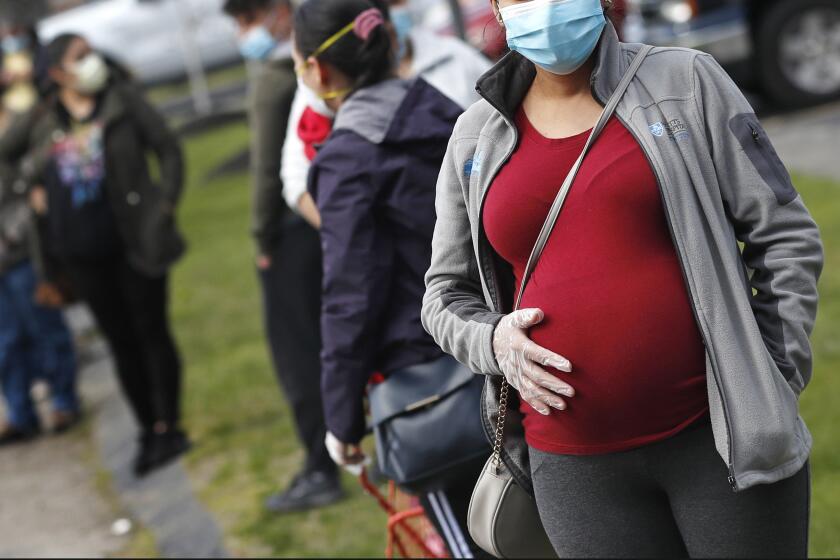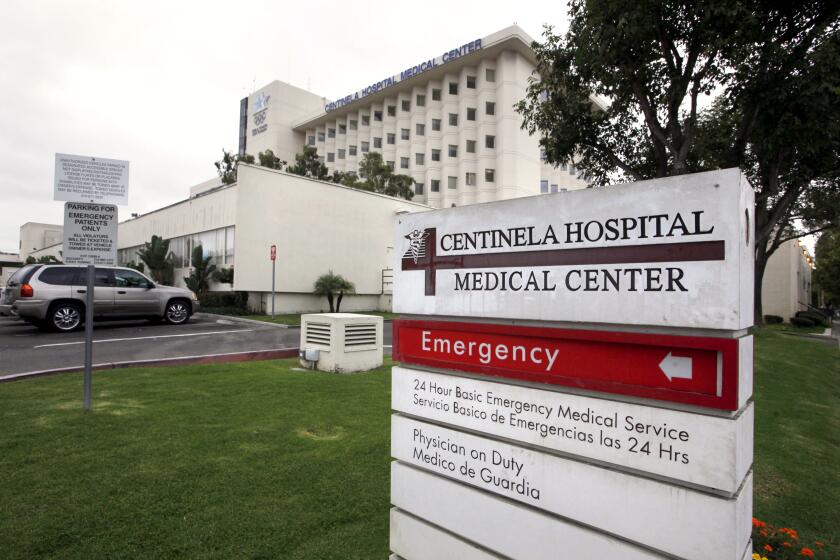Cedars-Sinai faces federal civil rights investigation over treatment of Black mothers
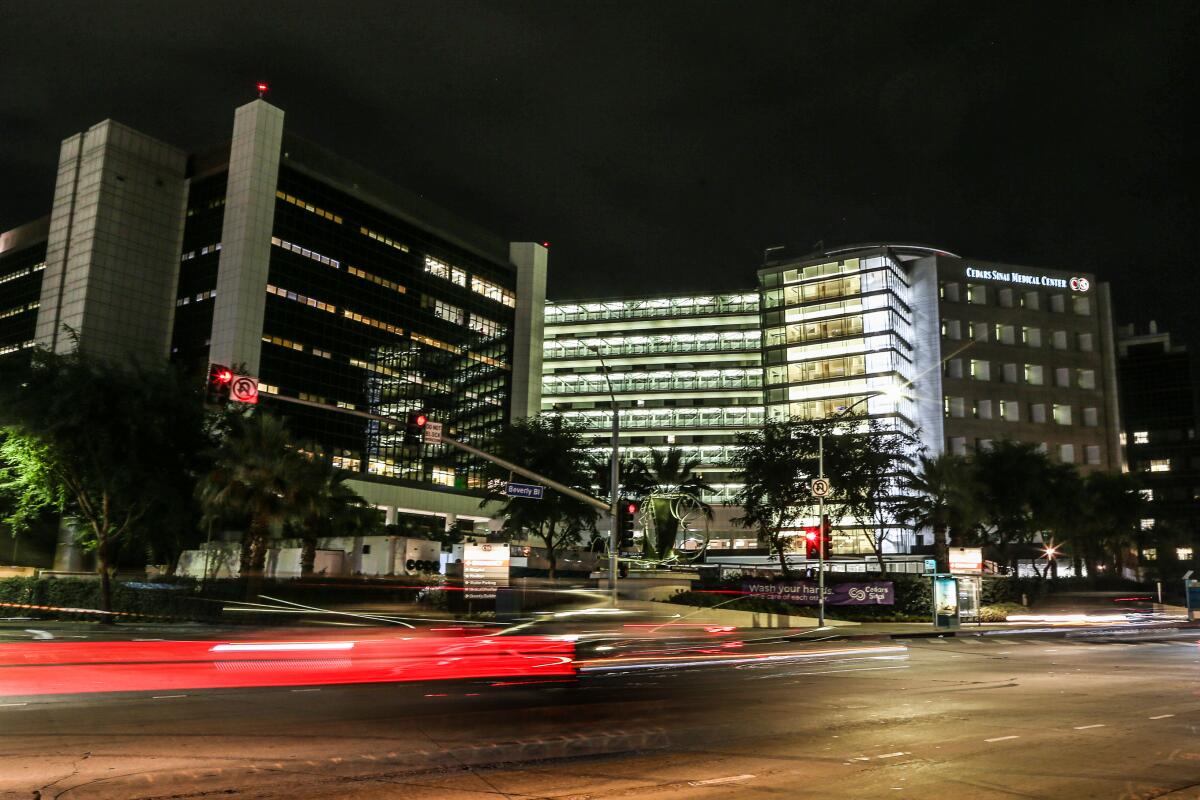
- Share via
Cedars-Sinai Medical Center is facing a federal civil rights investigation over how the Los Angeles hospital treats Black women who give birth there, an official with the U.S. Department of Health and Human Services confirmed.
The investigation comes after allegations of racism and discrimination emerged in the years after the death of Kira Dixon Johnson.
Johnson went to Cedars-Sinai in April 2016 to deliver her second son by cesarean section but died hours later after hemorrhaging blood. News of the incident spread over social media and led to her husband, Charles Johnson IV, filing lawsuits against the hospital over her death.
The Times obtained a copy of a letter the federal agency sent to Charles Johnson in March indicating that it was aware of the allegations involving the hospital’s level of care for Black women.
The Office of Civil Rights “has been made aware of concerns regarding the standard of care provided to Black women in the care of Cedars-Sinai Medical Center,” the letter said. “Specifically, OCR is aware of allegations that Black women are provided a standard of care below what is provided to other women who are not Black when receiving health care services related to labor and delivery.”
The letter noted that based on the allegations and the fact that Cedars-Sinai receives federal funding, the agency is reviewing whether the hospital is complying with federal civil rights laws.
The family of Kira Dixon Johnson alleges in a lawsuit that racist practices at Cedars-Sinai Medical Center led to her bleeding out after giving birth.
Melanie Fontes Rainer, director of HHS’ Office of Civil Rights, confirmed the agency’s investigation in an emailed statement.
“Maternal health is a priority for the Biden-Harris Administration and one in which the HHS Office for Civil Rights is working on around the country to ensure equity and equality in health care,” Fontes Rainer said. “To protect the integrity of this ongoing investigation we have no further comment.”
In 2017, Johnson sued Cedars-Sinai in state court as well as the doctor who attended to his wife during her hospital stay, alleging wrongful death and emotional distress.
Separately, Johnson filed a civil rights lawsuit last year against Cedars-Sinai in Los Angeles County Superior Court accusing the hospital of not providing the best care possible because his wife was a Black woman. Both lawsuits were settled.
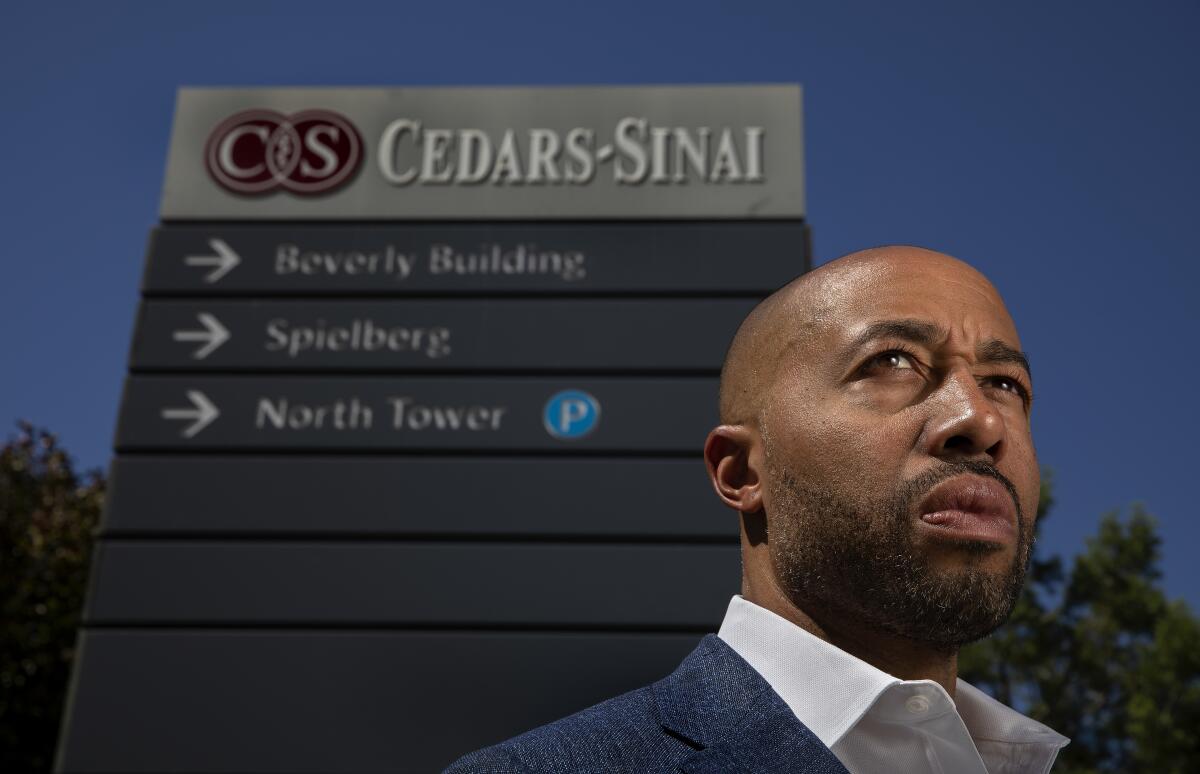
According to the lawsuits, Kira Johnson was admitted to Cedars-Sinai for a cesarean delivery, but hours later, Charles Johnson said he noticed her catheter was draining blood. Dr. Arjang Naim, her doctor, was made aware of her predicament and a “surgical emergency” CT scan was ordered.
But the scan was never performed, according to the lawsuits. By the time she was sent in for surgery, doctors found three liters of blood in her abdomen, and she soon died from hemorrhagic shock due to the blood loss, the lawsuits say.
The hospital said in a statement last year about the lawsuit that officials “reject any mischaracterization of our culture and values” and they were actively working to “eradicate unconscious bias in healthcare.”
Deaths of pregnant women surged by 40% during the pandemic, according to new federal data. California has been a leader in reducing maternal mortality.
In an emailed statement to The Times, Cedars-Sinai officials referred questions about “any potential investigation” to Health and Human Services.
“Cedars-Sinai clinicians, leaders and researchers have long been concerned with national disparities in Black maternal health, and we are proud of the work we’ve done (and continue to do) to address these issues in Los Angeles as well as at the state and national levels,” the statement said.
Hospital officials also pointed to their work to improve maternal health outcomes, including working with the California Maternal Quality Care Collaborative, which brings state agencies, hospitals and health provider associations together to look for ways to prevent pregnancy complications and deaths.
Centinela Hospital in Inglewood violated federal requirements in ways that could jeopardize patients, including women in labor, a state review found.
The hospital also noted it is conducting clinical studies aimed at improving Black maternal and infant health; providing annual unconscious bias training for staff members; and giving more than $2.2 million in grants to Los Angeles County-area nonprofit organizations seeking to improve Black maternal health.
The hospital also has a partnership with Cherished Futures for Black Moms & Babies, to connect healthcare organizations and Black community leaders to develop solutions to reduce inequities in Black maternal and infant health.
Cedars-Sinai helps nearly 7,000 women deliver their babies each year, according to the hospital’s website.
The National Center for Health Statistics reported in March that 1,205 pregnant women died in the United States in 2021, a 40% increase over 2020, when 861 deaths occurred. The total was 754 in 2019.
Pregnant Black women continued to have the highest risk of dying, according to the report. In 2021, the maternal mortality rate for Black women was 69.9 deaths per 100,000 live births, 2.6 times the rate for white women at 26.6 deaths. Among Hispanic women, the report found there were 28 deaths per 100,000 live births.
More to Read
Sign up for Essential California
The most important California stories and recommendations in your inbox every morning.
You may occasionally receive promotional content from the Los Angeles Times.
